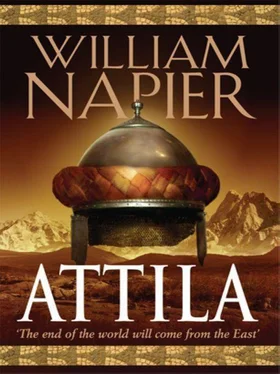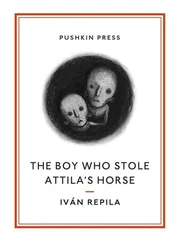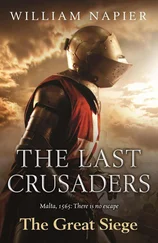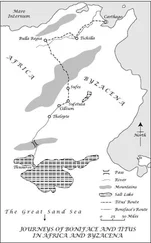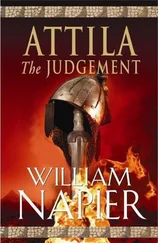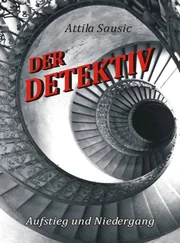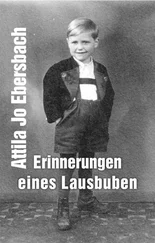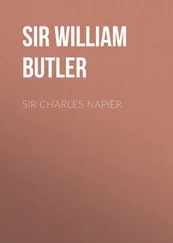William Napier - Attila
Здесь есть возможность читать онлайн «William Napier - Attila» весь текст электронной книги совершенно бесплатно (целиком полную версию без сокращений). В некоторых случаях можно слушать аудио, скачать через торрент в формате fb2 и присутствует краткое содержание. Жанр: Исторические приключения, на английском языке. Описание произведения, (предисловие) а так же отзывы посетителей доступны на портале библиотеки ЛибКат.
- Название:Attila
- Автор:
- Жанр:
- Год:неизвестен
- ISBN:нет данных
- Рейтинг книги:5 / 5. Голосов: 1
-
Избранное:Добавить в избранное
- Отзывы:
-
Ваша оценка:
- 100
- 1
- 2
- 3
- 4
- 5
Attila: краткое содержание, описание и аннотация
Предлагаем к чтению аннотацию, описание, краткое содержание или предисловие (зависит от того, что написал сам автор книги «Attila»). Если вы не нашли необходимую информацию о книге — напишите в комментариях, мы постараемся отыскать её.
Attila — читать онлайн бесплатно полную книгу (весь текст) целиком
Ниже представлен текст книги, разбитый по страницам. Система сохранения места последней прочитанной страницы, позволяет с удобством читать онлайн бесплатно книгу «Attila», без необходимости каждый раз заново искать на чём Вы остановились. Поставьте закладку, и сможете в любой момент перейти на страницу, на которой закончили чтение.
Интервал:
Закладка:
Honorius stared at this terrifying barbarian for a little while longer, his small round mouth agape. Then, with a high-pitched shriek, he sprang from his throne and ran off down the steps towards the rooms behind, clutching his skirts up round his bony shanks as he went. His sister stood and hurried after him.
The moment they were gone, Chanat ripped apart the delicate brooch that held the white silk cloak around his shoulders. The cloak slithered from his golden, lean-muscled torso and fell with a whisper to the floor. He turned and trod it underfoot and walked out of the Chamber of the Imperial Audience.
At the gates of the city, his horse was returned to him. He checked the reins, and found that not one of the decorative gold coins was missing. He complimented the guards on their honesty in perfect Latin, vaulted onto his horse, and rode away across the causeway over the flat Ravenna marshlands towards home.
Attila and Aetius hunted together more and more, along with their slaves, Orestes and Cadoc, until they began to be referred to among the People simply as ‘the Four Boys’.
They competed endlessly in games of wrestling and swordplay, spear- and noose-throwing, or the ancient Hun game involving furious galloping after an inflated pig’s bladder which they called a pulu. They came to worship Chanat, the greatest and most fearless warrior among all the People, but he told them to admire not strength but wisdom.
‘Wisdom,’ snorted Attila. ‘Give me strength any time.’
Chanat shook his head. Then he began to speak; strangely, he spoke of Little Bird, though Attila had not mentioned the mad shaman.
Nearby Aetius stopped to listen, his deep blue eyes grave in his fine-featured face. He, too, wondered about Little Bird, this high-born Roman boy, raised on the solemn teachings of Seneca and Epictetus as much as the doctrines of the Holy Catholic Church, and all their fine words about the wisdom of Providence, and the ultimate goodness of the world. In his heart the words and songs of Little Bird frightened him more than any other.
‘There are many reputed to be wise in this world,’ began Chanat slowly, ‘but we among the People know that Little Bird alone in all his madness is wise. He is wise because he is god-maddened. He alone has walked with the gods in counsel. He sat for nine winters and nine summers on a mountaintop in the holy Altai Mountains, and he ate nothing but a grain of rice a day. For water he sucked the snowflakes that landed on his lips. And for nine long years he never once opened his eyes upon the sensate world, but walked only with the gods, with the unknown powers behind the curtain of the world. When he came back, he came back not with a message of comfort.’
They waited for his words.
‘He came back from them, those beings with hawk-heads and eagle-eyes, who cast shadows on the earth bigger than mountains, those makers of the bear’s claw and the boar’s tusk – such things delight them. Since then, Little Bird only dances, or sings nonsense songs, or talks with his only friend, the wind. He delightedly mocks any who speak wise, grave words about the justice of the heavens, or the high duty and destiny of men. For, he says, we men are only the idle jokes of God.’
Aetius was afraid of Little Bird; or at least of the words that Little Bird madly spoke and sang. And he knew that his friend Attila was afraid, too.
4
Attila was preparing to ride out one morning with Orestes, each of them astride one of the squat, large-headed little Hun horses, when Aetius and his dark-eyed slaveboy came riding back into camp.
‘You’ve been hunting already?’
The Roman boy pulled a duck from his shoulder bag.
Attila sneered. ‘A day’s ride, and we’ll be in boar country. There’s a wooded valley to the north-east. We’ll stay the night and hunt tomorrow. But’ – he reached over and flicked the quiver that hung from the Roman boy’s shoulder – ‘you’ll need more than your little boy’s bow and arrows.’
Aetius glanced down and saw the heavy spear slung along the belly of Attila’s horse. He rode off without another word, and a few minutes later reappeared, riding out of the camp with a long ashen spear, a thick iron cross-bar just below the long, pointed head: a boar-spear, to stop the animal’s furious charge. For it wasn’t unknown for a boar to receive an ordinary spear in its side and yet push its way onward, screaming, right up the shaft to rip open the horse’s belly with its six-inch tusks, even in its bloody death-throes.
Attila narrowed his eyes as the Roman approached, his silent, faithful little slave behind him.
‘Come on, then,’ he said to Orestes. ‘He’ll have to catch us up.’
Driving his heels hard into his little pony, he set off at a gallop across the bright green grasslands of the unfenced and endless steppes.
By the end of an unremitting day’s ride, when they reached the edge of the wooded valley, all four boys were exhausted, though none would show it. They said little as they made camp in the shadows of the trees, dragging up firewood and building themselves a comforting orange glow.
‘You, boy,’ said Attila to Aetius’ slave, ‘bring more firewood up to last the night.’
The boy trotted off to do his bidding.
Attila nodded. ‘He’s good.’
‘He’s very good,’ said Aetius.
‘What people?’
‘He’s a Celt – British.’
‘Ah. Good fighters once.’
‘Good fighters still.’
‘And he understands Hunnish.’
‘He speaks and understands Hunnish, Latin, Celtic, Saxon, Gaulish, and some Gothic.’
‘Educated, for a slave.’
‘He wasn’t always a slave.’
The boys stared into the fire for a while, wondering how else they could compete. Then Attila said, ‘Here, have some of this.’ He passed over a leather flask.
‘What is it?’ asked Aetius suspiciously.
‘Kind of fermented sheep’s milk.’
‘Not koumiss again?’
Attila shook his head. ‘No, it doesn’t get you drunk. It’s just sheep’s milk that’s gone sour, sort of. It keeps well in hot weather.’
Aetius put the neck of the flagon cautiously to his lips and tasted. An instant later he held the flagon aside and spat his mouthful of the stuff straight into the sizzling fire.
Attila roared with laughter and took the flagon back.
Aetius wiped his lips, an expression of revulsion on his face. ‘What in Hades was that?’
Attila grinned broadly. ‘We call it yogkhurt.’
‘ Yogkhurt?’ repeated Aetius, even more gutturally.
Attila nodded.
Aetius shook his head. ‘Sounds as bad as it tastes.’
The next day they went looking for boar. They picked up a spoor very soon – telltale footprints of two main toes, with two barely visible either side – but lost the track in the dense undergrowth where their horses couldn’t go. Later they found what looked like a wallow beside a fallen treetrunk. Attila dismounted and gave a low whistle, crouching beside the treetrunk, running his fingertips over the bark.
‘What is it?’
‘These grooves. They’re deep.’ He grinned. ‘It’s a big one.’
They rode on.
‘It’ll be lying up somewhere,’ Attila called back. ‘We’ll have to flush it out.’
‘I can smell something,’ said Cadoc.
Attila turned and stared at the slaveboy. ‘You have boar in your country, as well as perpetual rain?’
The boy nodded. ‘Many boar. In the autumn, up in the beechwoods, we-’
The boar came screaming out of nowhere. It flashed across Attila’s mind, even as he glimpsed the great, bristling curve of its back as it charged snorting towards them, that it must be a mother and they had stumbled on her close to her litter. No ferocity in nature like the ferocity of a mother protecting her young. But then he registered the boar’s size, the length of its tusks – eight inches? nine? – and his ears registered the thunderous galloping of its small hooves across the clearing, carrying its massive weight of four hundred pounds or more His ears were filled with a more dreadful sound, of a horse screaming. He was lying face down on the forest floor, his mouth full of a mulch of last year’s leaves. His horse was writhing in agony across his legs, as the huge boar worked furiously away on the other side, opening up the horse’s belly with lightning-quick slashes of its terrible tusks.
Читать дальшеИнтервал:
Закладка:
Похожие книги на «Attila»
Представляем Вашему вниманию похожие книги на «Attila» списком для выбора. Мы отобрали схожую по названию и смыслу литературу в надежде предоставить читателям больше вариантов отыскать новые, интересные, ещё непрочитанные произведения.
Обсуждение, отзывы о книге «Attila» и просто собственные мнения читателей. Оставьте ваши комментарии, напишите, что Вы думаете о произведении, его смысле или главных героях. Укажите что конкретно понравилось, а что нет, и почему Вы так считаете.
